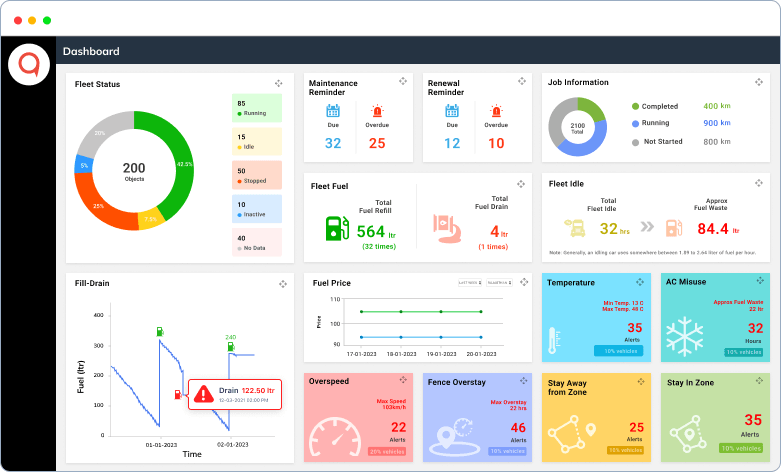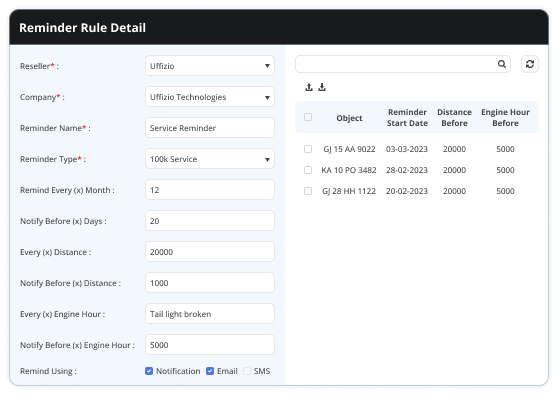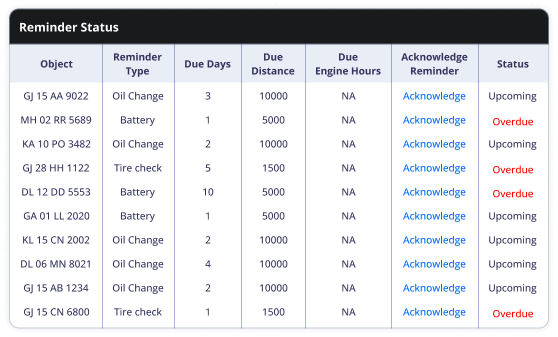Maintenance is the key to lower downtime and expenses and significantly increasing profit.
Maintenance is the key to lower downtime and expenses and significantly increasing profit.

Improve fleet performance & efficiency
Your key to lower downtimeand expenses

With maintenance reminders, fleet managers can significantly schedule and track vehicle maintenance tasks to ensure that their fleet is always in top condition. Reminders can be set- Based on Mileage: When a vehicle reaches a specific mileage threshold. Moreover, these reminders prompt fleet managers to schedule and perform routine maintenance tasks. Based on Engine Hours: When a vehicle’s engine has operated for a specific number of hours. These reminders prompt fleet managers to schedule and perform routine maintenance. Based on Time: When a specific duration of time has elapsed since the last maintenance task or a particular date has been reached. These reminders prompt fleet managers or drivers to schedule or perform routine maintenance tasks.
Renewal reminders play a crucial role in alerting fleet managers to important renewal dates, such as licenses, permits, registrations, and other documents necessary to legally operate vehicles. Consequently, these reminders assist fleet managers in ensuring ongoing compliance with regulatory requirements. Additionally, they help in avoiding fines or penalties that may arise due to lapses in documentation. Ultimately, these reminders contribute to the maintenance of operating authority for fleet managers.

Maintenance ensures that vehicles are operating at optimal performance levels, reducing the risk of unplanned downtime due to mechanical issues.
Regular maintenance helps to extend the lifespan of the vehicles by addressing minor issues before they turn into major problems.
You can set up alerts based on a range of parameters such as mileage, time, or usage, and schedule maintenance according to the specific need of your fleet.
The software sends automated notifications to fleet managers when a maintenance task is due or overdue, reducing the risk of missed appointments and ensuring that vehicles receive timely attention.
This report provides a summary of various reminders and tasks. It includes details such as the type of reminder, previous reminder date, remaining days or distance until the task is due, remaining engine hours, etc.
This report provides a comprehensive overview of the reminders issued to drivers or personnel and their subsequent acknowledgment or completion status.
Check out how our platform is helping companies in this field increase profits and productivity!
Questions to ask before you invest